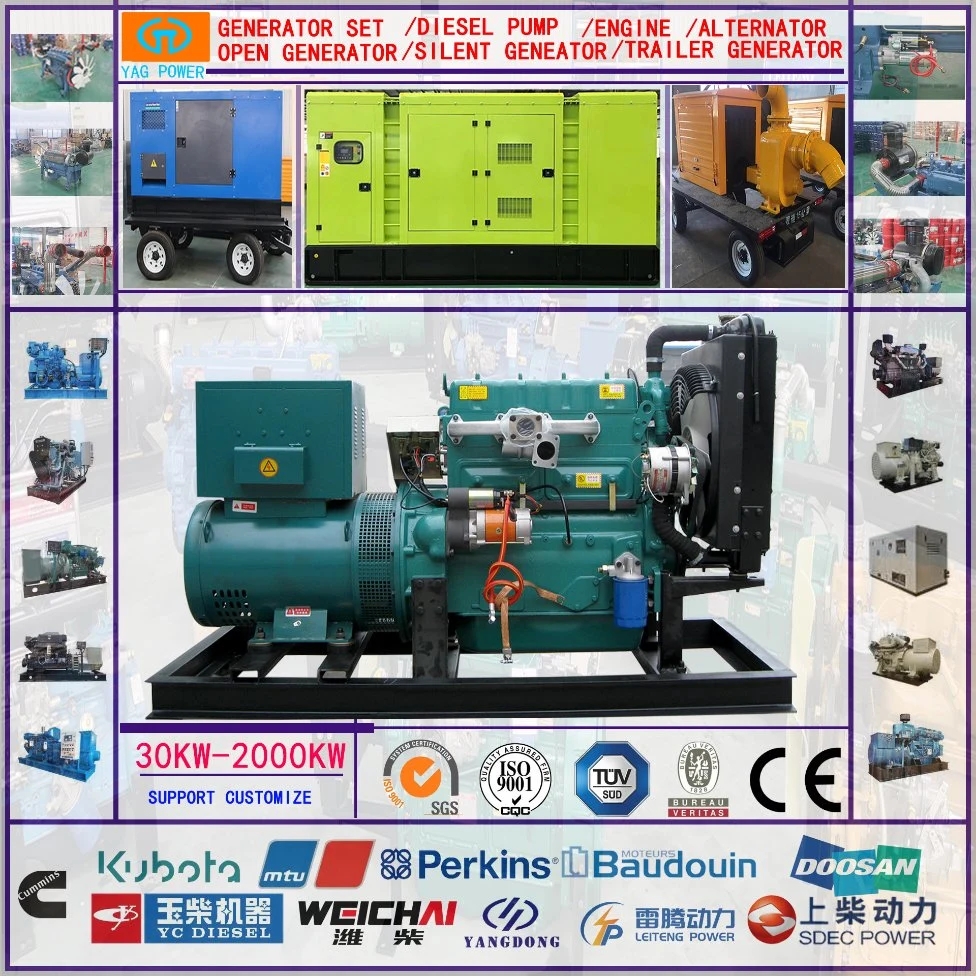Diesel Generators for Renewable Energy Integration A Comprehensive Guide

30kw diesel generator for construction sites
In recent years, the world has witnessed a significant shift towards renewable energy sources such as solar, wind, and hydroelectric power. These sources are clean, sustainable, and offer numerous environmental benefits. However, one of the challenges faced by renewable energy systems is their intermittent nature, as they depend on factors such as weather conditions and time of day. This intermittency can lead to fluctuations in power generation, making it difficult to ensure a stable and reliable energy supply. To address this issue, diesel generators have emerged as a valuable tool for integrating renewable energy sources into the power grid. In this article, we will explore the role of diesel generators in renewable energy integration, their benefits and challenges, and best practices for their deployment.
Role of Diesel Generators in Renewable Energy Integration
Diesel generators play a crucial role in integrating renewable energy sources into the power grid by providing backup power during periods of low renewable energy generation. When renewable energy sources such as solar panels or wind turbines are unable to meet the electricity demand due to factors like cloud cover or low wind speeds, diesel generators can quickly ramp up to fill the gap and ensure a continuous power supply. This flexibility and reliability make diesel generators an essential component of hybrid energy systems that combine renewable and conventional energy sources.
Benefits of Diesel Generators for Renewable Energy Integration
1. Reliability: Diesel generators are known for their reliability and ability to provide continuous power supply, making them ideal for backup power in renewable energy systems.
2. Fast Response Time: Diesel generators can ramp up quickly to meet sudden changes in electricity demand, providing stability to the grid during fluctuations in renewable energy generation.
3. Energy Security: Diesel generators offer energy security by providing a reliable source of backup power in case of grid outages or disruptions to renewable energy supply.
4. Cost-Effectiveness: Diesel generators are relatively affordable to install and maintain compared to other backup power options, making them a cost-effective solution for renewable energy integration.
5. Fuel Availability: Diesel fuel is widely available and can be stored on-site, ensuring a continuous fuel supply for diesel generators in remote or off-grid locations.
Challenges of Diesel Generators for Renewable Energy Integration

While diesel generators offer numerous benefits for renewable energy integration, they also present some challenges that need to be addressed:
1. Environmental Impact: Diesel generators emit greenhouse gases and air pollutants, contributing to climate change and air pollution. To mitigate these environmental impacts, measures such as using cleaner diesel fuel or implementing emission control technologies can be employed.
2. Fuel Dependence: Diesel generators rely on a steady supply of diesel fuel, which can be subject to price fluctuations and supply chain disruptions. To address this challenge, renewable energy systems can be designed with energy storage options to reduce reliance on diesel generators.
3. Maintenance Requirements: Diesel generators require regular maintenance to ensure optimal performance and reliability. Neglecting maintenance tasks can lead to breakdowns and downtime, affecting the overall reliability of the power system.
Best Practices for Deploying Diesel Generators in Renewable Energy Systems
To maximize the benefits of diesel generators for renewable energy integration and mitigate their challenges, the following best practices can be implemented:
1. Proper Sizing: Diesel generators should be sized appropriately to meet the peak power demand of the system while minimizing fuel consumption and emissions. Oversized generators can lead to inefficiencies and increased operating costs.
2. Fuel Quality: Using high-quality diesel fuel can improve the efficiency and longevity of diesel generators while reducing emissions. Regular fuel testing and maintenance of fuel storage tanks are essential to ensure fuel quality.
3. Emission Control: Installing emission control technologies such as diesel particulate filters and selective catalytic reduction systems can help reduce the environmental impact of diesel generators by lowering emissions of pollutants like nitrogen oxides and particulate matter.
4. Remote Monitoring: Implementing remote monitoring systems can enable real-time monitoring of diesel generator performance and fuel levels, allowing for proactive maintenance and troubleshooting to prevent downtime.
5. Energy Storage Integration: Integrating energy storage systems such as batteries with diesel generators can enhance system flexibility and resilience by storing excess renewable energy for later use or providing backup power during generator downtime.
Conclusion
Diesel generators play a vital role in integrating renewable energy sources into the power grid by providing backup power during periods of low renewable energy generation. While they offer reliability, fast response time, and cost-effectiveness, diesel generators also present challenges related to environmental impact, fuel dependence, and maintenance requirements. By following best practices such as proper sizing, fuel quality management, emission control, remote monitoring, and energy storage integration, the benefits of diesel generators in renewable energy systems can be maximized while mitigating their challenges. With careful planning and implementation, diesel generators can serve as a valuable asset in achieving a sustainable and reliable energy supply through the integration of renewable energy sources.
